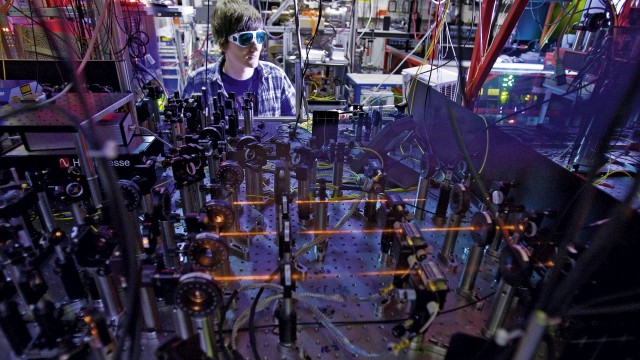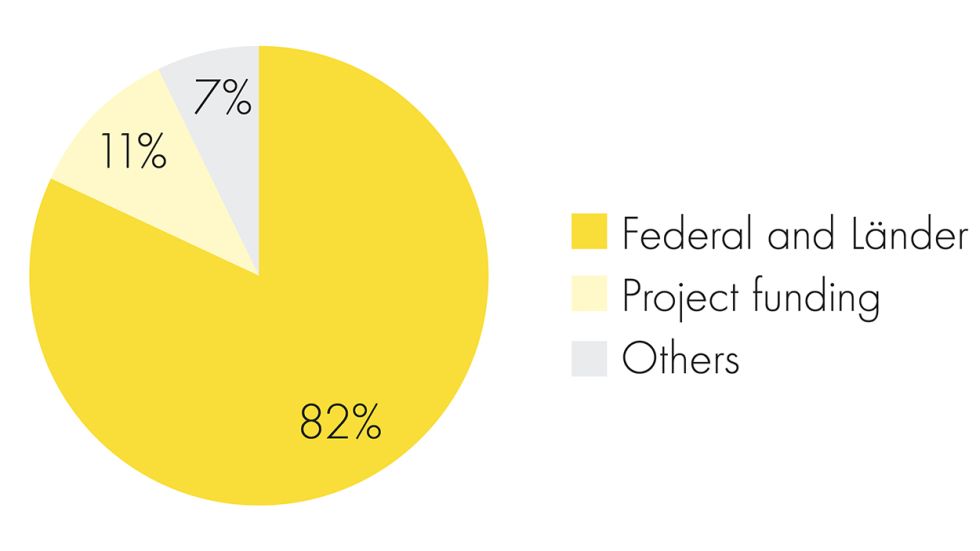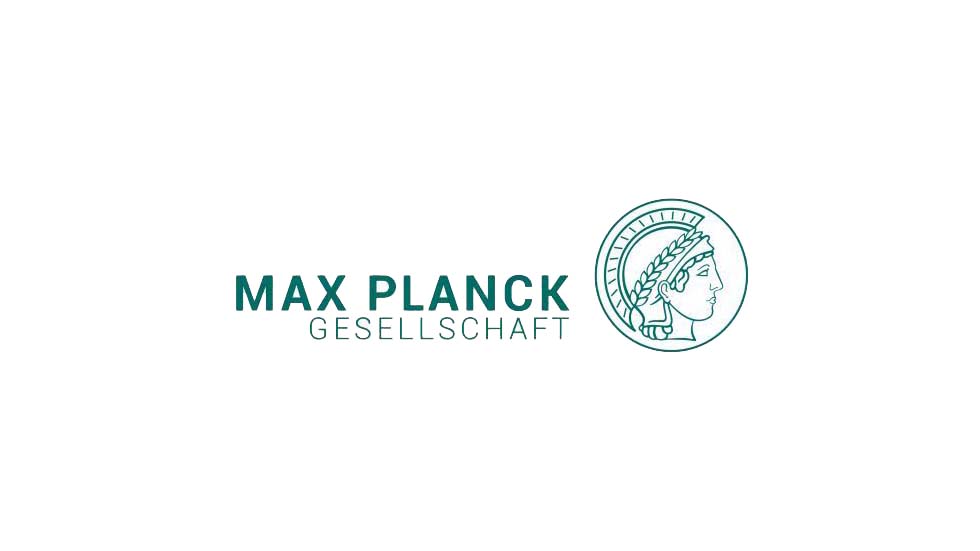Support making RiG more international!
Click here to start the surveySupport making "Research in Germany" more international! Your expertise and commitment are the key to the further development of promoting the German research landscape. We invite you to take part in our online survey and share your valuable experiences and opinions. Duration: 7-10 min.
Please start the survey at the end of your visit.
Max-Planck-Gesellschaft
The Max Planck Society enjoys worldwide recognition for its excellence in research and is Germany's most successful research institution. It has produced 31 Nobel Laureates who were scientific members of either the Max Planck Society or its predecessor, the Kaiser Wilhelm Society, in the year they received their prize. For example, Emmanuelle Charpentier, scientific and managing director of the Max Planck Unit for the Science of Pathogens in Berlin, received the prestigious award in chemistry in 2020.
In 2023, Ferenc Krausz, director of the Max Planck Institute of Quantum Optics and professor at Ludwig-Maximilians-Universität München, was awarded the Nobel Prize in Physics, while 2022 saw Svante Pääbo, director of the Max Planck Institute for Evolutionary Anthropology in Leipzig, receive the Nobel Prize in Medicine.
The Max Planck Institutes offer a vibrant, open and international working environment. Not surprisingly, the appeal of the Max Planck Society has spread worldwide. More than half of all the researchers at the Max Planck Society hold a foreign passport, forming a creative cosmos in which interdisciplinary and intercultural concepts and innovative ideas come to bear. This, in turn, ensures the success of the excellent basic research for which the Max Planck Society is renowned.
The Max Planck Society supports outstanding young scientists and researchers, who complete formative years of their careers as student assistants, PhD students, postdocs or research group leaders at a Max Planck Institute, and who benefit from the knowledge of their internationally networked research mentors.

Organisational details
More than 24,000 people (researchers, doctoral students, graduates, scholarship holders, visiting researchers and staff) are employed at the Max Planck Society. The headquarters are located in Munich.
In all, 84 institutes and research facilities of the Max Planck Society enrich the German research landscape. They include centres not only in Germany, but also abroad. The research institutions have their own budgets and are free to decide on their research projects. Heads of institutes enjoy the best possible working conditions and have complete autonomy in choosing their staff, subject matter and cooperation partners.
Facts and figures
84 research institutes and facilities, including four institutes and one research facility outside Germany
More than 24,000 employees, including 6,700 researchers, 3,200 visiting researchers and approx. 520 scholarship holders (2023)
Well over half of the researchers come from outside Germany
Annual budget: approx.2.9 billion euros (2023)
Research activities
Max Planck Institutes conduct basic research in the interest of the public good. The research fields are:
- Natural sciences
- Life sciences
- Human sciences (law and economics, social and behavioural sciences, cultural sciences and humanities)
Some institutes also perform services for university research, providing equipment and facilities to researchers, such as telescopes, large-scale equipment, specialised libraries and documentary resources.
International cooperation
Max Planck Institutes frequently build international networks to create the critical mass for specific research topics. Max Planck researchers are highly sought-after and appreciated as esteemed research partners worldwide. This is evidenced by the fact that almost two out of three doctoral students with funding contracts come from abroad. Additionally, Max Planck Institutes have been involved in over 3,000 research projects with more than 6,000 partners in over 120 countries around the world.
As a research partner, the Max Planck Society collaborates with numerous institutes and multinational research facilities outside Germany.
Budget
The budget amounts to approx. 2.8 billion euros (2023).

The Max Planck Society is primarily financed by public funds from the Federal Government and the German states (Länder). Along with the subsidies from institutional support (2.1 billion euros), the Max Planck Society and its institutes receive project funding from both the federal government and federal state ministries as well as from the European Union, private funding and donations and payments for its own services.
Max Planck Society on social media:
